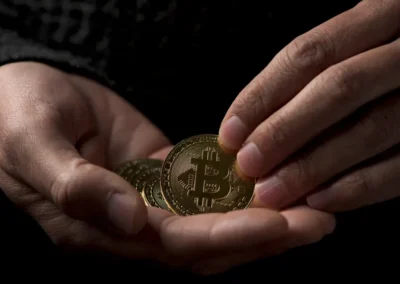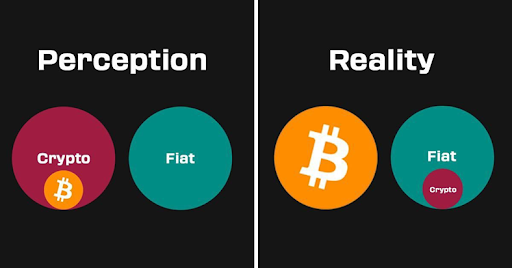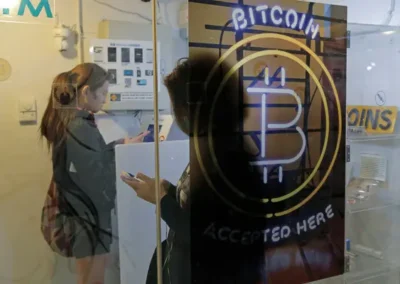WHY THE WORLD NEEDS ₿ITCOIN
Bitcoin was invented to address some of the shortcomings of traditional financial systems. It was created in 2009 by an anonymous person or group of people using the pseudonym Satoshi Nakamoto. The primary motivation behind Bitcoin’s invention was to create a decentralized digital currency that operates outside the control of any central authority, such as banks or governments
Bitcoin was designed to enable peer-to-peer transactions without the need for intermediaries, using a technology called blockchain. This technology allows for secure and transparent transactions, ensuring that transactions are recorded and verified by a network of computers (nodes) rather than relying on a single central authority.
Bitcoin was designed to enable peer-to-peer transactions without the need for intermediaries, using a technology called blockchain. This technology allows for secure and transparent transactions, ensuring that transactions are recorded and verified by a network of computers (nodes) rather than relying on a single central authority.
We encourage you to read the original Bitcoin whitepaper by Satoshi Nakamoto here.
By creating a decentralized digital currency, Bitcoin aimed to provide a global, borderless, and censorship-resistant means of transferring value. It was also developed as a response to the financial crisis of 2008, highlighting the need for a financial system that is resistant to manipulation and provides individuals with greater control over their money.
It has also attracted attention as a speculative investment and a store of value, in addition to its original purpose as a medium of exchange.
Since its inception, Bitcoin has gained popularity and inspired the development of numerous other cryptocurrencies (e.g, ethereum, dogecoin, litecoin, etc.). To date, there are ~23,000 other cryptocurrencies. The difference between bitcoin and other cryptocurrencies is the bitcoin is decentralized which means not one person or company owns bitcoin, can manipulate the network, or can buy the majority of coins to dominate money. Whereas all other cryptocurrencies are centralized which means they are offered by a person or company. That person or company can pre-mine coins and own more than the retail market and control that coin and your money!
The perception is that there is no difference between bitcoin and all the other cryptocurrencies. And, that cryptocurrencies are different than everyday fiat (e.g., USD, Euros, etc.). However, the reality is that cryptocurrencies and fiat are the same because they are designed, owned and managed by a central authority whereas no one owns bitcoin. The people of the world own bitcoin. That’s the beauty of what Satoshi Nakamoto gifted all of us
To learn more about the difference between bitcoin and cryptocurrencies read this article.
There are several reasons why the world benefits from bitcoin:
- Financial Inclusion: Bitcoin has the potential to provide financial services to the unbanked population who lack access to traditional banking systems. As long as individuals have internet access and a digital wallet, they can participate in the Bitcoin network.
- Decentralization: Bitcoin operates on a decentralized network called blockchain, which means it doesn’t rely on a central authority like a government or a bank. This decentralization promotes financial sovereignty, removes the need for intermediaries, and provides individuals with more control over their own money.
- Security: Bitcoin’s underlying technology, blockchain, offers robust security features. Transactions are cryptographically secured and recorded on a distributed ledger, making it difficult for unauthorized parties to tamper with or manipulate the transaction history.
- Borderless Transactions: Bitcoin allows for fast and low-cost transactions across borders without the need for traditional banking systems. This can be particularly useful in regions with limited access to financial services or for cross-border remittances, where traditional methods may be expensive or time-consuming
- Inflation Hedge: Bitcoin has a capped supply of 21 million coins, which means it is not subject to inflationary pressures. This feature appeals to individuals who are concerned about the erosion of the value of traditional fiat currencies over time.
Ultimately, the utility and necessity of bitcoin are subjective and depend on individual perspectives and specific use cases.






